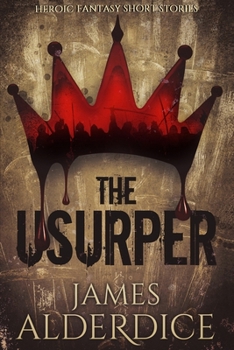THE USURPER: Heroic Fantasy Short Stories
(Part of the Brutal Saga Series)
Select Format
Select Condition 
Book Overview
The Road to the Crown is Red...
Gathelaus is a Sellsword. Since his youth he has fought and won against all foes. But now as successful commander of infamous mercenaries an unexpected opportunity presents itself. The Fates weave a tale with multiple threads in the tapestry of life and death. And once you take a crown through violence, how long can you hold it until that violence is turned against you?...
Follow Gathelaus on a journey through a life of violence, action and intrigue, battling gods and monsters across a mystic realm...
The Usurper is an action-packed collection of tales woven together in the vein of classic pulp fiction and heroic fantasy. If you like gory battles, larger-than-life characters, and witty humor, then you'll love James Alderdice's gritty tale.
Buy The Usurper to get lost in a bloody sword and sorcery adventure todayFormat:Paperback
Language:English
ISBN:0887845983
ISBN13:9780887845987
Release Date:October 2024
Publisher:House of Anansi Press Inc.
Length:112 Pages
Weight:0.30 lbs.
Dimensions:0.3" x 5.0" x 8.0"
Customer Reviews
8 customer ratings | 4 reviews
There are currently no reviews. Be the first to review this work.





















